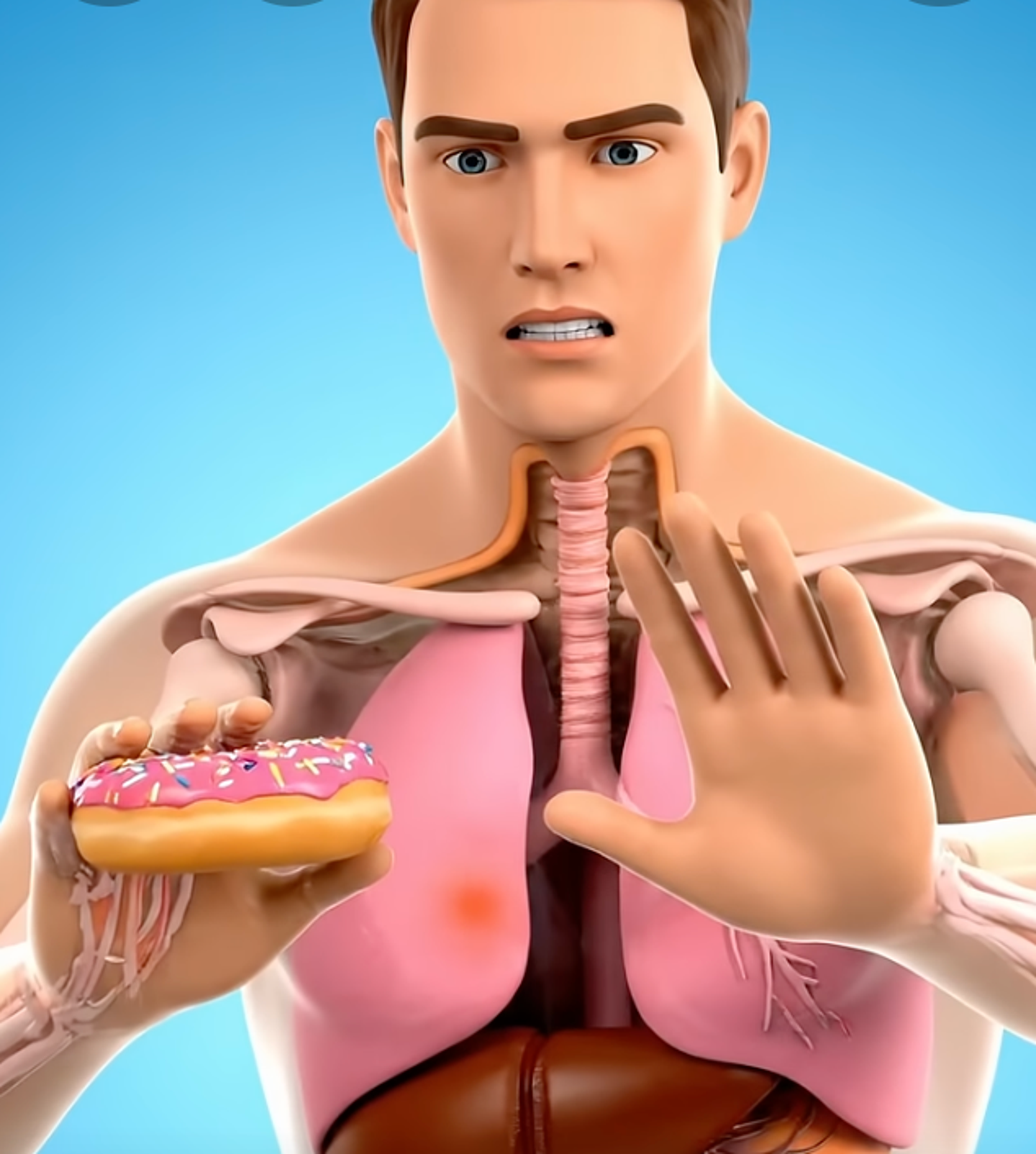Cutting back on sugar can be a tough process, and the first week brings big changes
Shocking Simulation Reveals What Actually Happens To Your Body When You Quit Sugar For Seven Days
A new simulation shows how both your mind and body can react during the first seven days of trying to quit sugar, breaking down the process step by step and revealing just how hard it can be.
There is nothing wrong with enjoying something sweet once in a while, but many people begin to rely on sugary snacks far more often than they realize. That habit can build up over time, leaving them feeling low in energy and struggling to cut back.
Because of this, some people decide to drop sugar completely, thinking it will be a quick way to reset their cravings. However, going cold turkey is often far more challenging than it sounds, and this simulation helps explain why.
The YouTube channel Untold_Healing created a detailed simulation showing how the body can go through physical and mental shifts when someone gives up sugar, which helps explain why the process feels overwhelming for so many people.
Even though the first few days are tough, reducing sugar intake can play a major role in lowering your risk of diabetes, obesity, and several other health issues. So sticking with the change, even when it feels uncomfortable, can pay off over time.
In the video, the narrator explains how the body reacts throughout the first week, giving viewers a clearer picture of what to expect as the days pass.

Days one and two without sugar
The simulation explains that these first days are usually the hardest because cravings tend to hit fast and with a lot of intensity.
"Headaches, mood swings and fatigue, your body is literally going through withdrawal."
Days three and four without sugar
By this point, things usually start to feel a little easier. The simulation notes that the clouded feeling begins to fade, and people often notice their energy stays steadier throughout the day without those sudden afternoon crashes.
Days five to seven without sugar
Later in the week, the simulation suggests that the body begins showing more visible changes. People may notice clearer skin, less puffiness, and fewer flare-ups from inflammation.
"Bonus, you'll sleep better and stop craving sweets as intensely," the video adds.
"Most people don't realize they are eating 17 teaspoons of added sugar daily, three times the recommended amount."

The simulation’s points also line up with what experts from the rehab organization Addiction Help have stated about sugar withdrawal and how strongly sugar can influence the brain.
They explain that although lowering sugar intake has long-term benefits, the process can be difficult because sugar affects brain chemistry in ways many people do not fully realize.
The organization stated: "Sugar consumption can have a powerful effect on the brain's production of dopamine, a neurotransmitter strongly associated with feelings of pleasure and reward."
When someone consumes a lot of sugar, the brain releases dopamine, which can make a person crave more and rely on it over time.
"For individuals with a dependence on or addiction to sugar, lowering sugar intake can lead to many unpleasant withdrawal symptoms."
Highlighting some of the most common symptoms people experience during sugar withdrawal, they added: "Common symptoms in the early stages of sugar withdrawal include physical symptoms like headaches, fatigue, and nausea."
"Mental symptoms include irritability, anxiety, mood swings, and generally worsened mental health."
"The important thing is to stick with whatever diet change you make. Some people try and fail to cut sugar completely, thus going through rounds of withdrawal, relapse, and withdrawal."
"If you find it difficult to do a complete sugar detox, try slowly eliminating sugar or a low-sugar diet."

